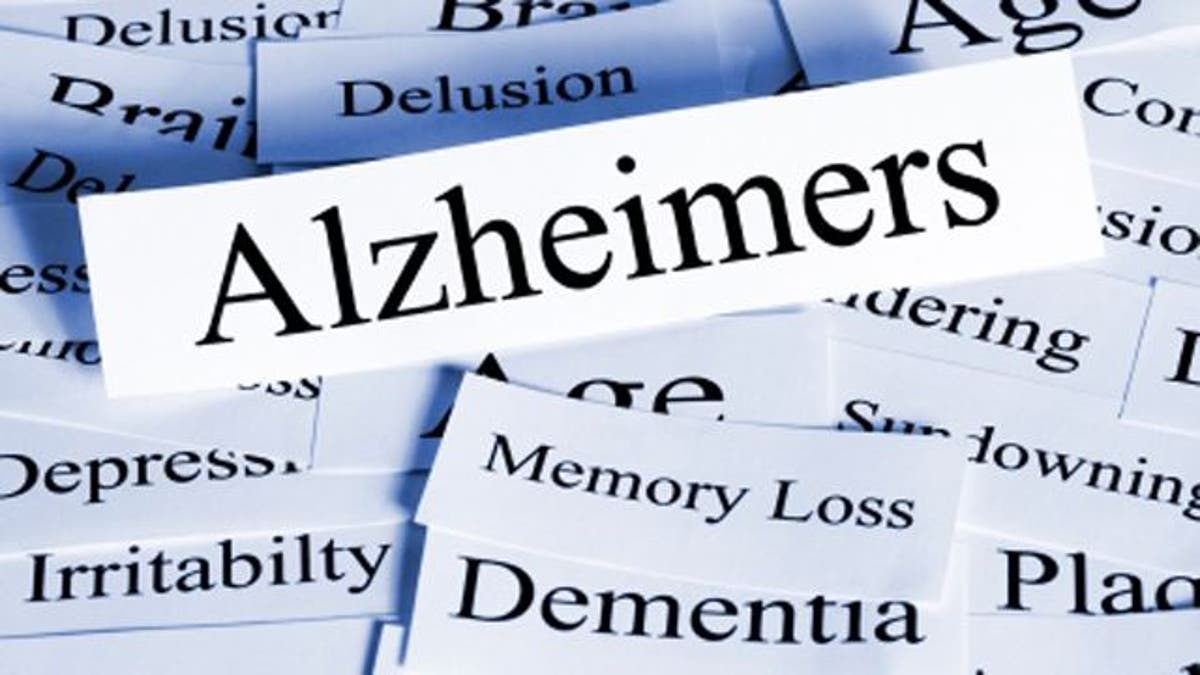
Alzheimer’s disease is currently the sixth leading causes of death in the United States, according to the Centers for Disease Control and Prevention (CDC). But now, new research published in Neurology suggests that Alzheimer’s disease may actually be responsible for as many deaths each year as heart disease or cancer – the two leading causes of death in the U.S.
The disease, the most common form of dementia, tends to be underreported as a cause of death because it leads to other conditions that are then listed on death reports.
“The most common thing people with Alzheimer’s die of is pneumonia— the part of the brain that controls breathing and eating starts to dysfunction and eventually more infections [occur] in the lungs through food particles or just not being able to breath properly,” researcher Bryan D. James, an assistant professor and epidemiologist at the Rush Alzheimer’s Disease Center at Rush University Medical Center in Chicago, told FoxNews.com.
While about one-third of Alzheimer’s patients die of pneumonia, nearly that many die from heart failure, as the brain’s ability to control the heart and other organs starts to slowly shut down.
To more accurately understand death rates from Alzheimer’s, James and his team conducted an observational study of 2,566 volunteers, all age 65 or older. At the start of the study, participants underwent cognitive testing and were then re-tested annually. Researchers used those tests, combined with family history, to identify participants with dementia. They then followed participants for an average of eight years, though they observed some for up to almost 20 years.
A total of 559 participants developed Alzheimer’s disease during the course of the study. Participants with Alzheimer's who were between ages 75 to 84 had a death rate that was more than four times higher than participants without Alzheimer's disease. Furthermore, participants over age 85 with Alzheimer’s had a death rate nearly three times higher compared to the rest of the group. Overall, Alzheimer’s disease contributed to more than one-third of all deaths in participants over age 75.
According to researchers, their findings translates into an estimated 503,400 deaths from Alzheimer’s in Americans over age 75 in 2010 – five to six times higher than the 83,494 deaths due to Alzheimer’s reported by the CDC.
Researchers say their data also points to the fact that a single cause of death is not always accurate for older adults. While a diagnosis of Alzheimer’s disease is usually associated with loss of memory— misplacing keys, forgetting names— as the disease progresses, it affects other parts of the brain that control unconscious functions such as breathing, swallowing and heart rate. Eventually, it begins to affect the part of the brain that controls basic function, which can lead to complications like pneumonia.
“Really what’s happening is you’re slowly deteriorating from this disease in your brain,” James said. “It’s a fatal disease. Until we come up with a cure or an effective treatment, eventually people will succumb to the disease or pass away. [Patients have] 3 to 10 years, average, to live, after diagnosis.”
The findings emphasize the need for public awareness about the disease.
“From a public health point of view, it points to the fact that this is a major risk factor for our society and because it’s so linked to the aging process and we know baby boomers are getting older now and we’re going to have a rapidly expanding aging population, this is going to be a more important issue in the future, as well,” Dr. James Leverenz, director of the Cleveland Clinic Lou Ruvo Center for Brain Health in Las Vegas, who was not involved in the study, told FoxNews.com. “[This study] is something that really puts the highlight on how important Alzheimer’s is to our public health.”
While it may seem morbid that study participants volunteered for research on their own mortality, James said their efforts will pay off for future generations.
“[They’re] giving back to science, giving back to their grandchildren,” he said. “Everyone knows we may not find anything to help prevent disease or anyone currently in their 80s, but for their grandchildren, this could be extremely helpful.”








































